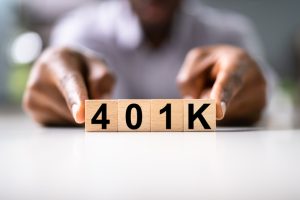Credit Sesame’s personal finance news roundup June 7, 2025. Stories, news, politics and events impacting personal finance during the past week.
Job growth slowed in May 2025
The Bureau of Labor Statistics reported that the US economy added 139,000 jobs in May. That marked a decline in employment growth from the 147,000 jobs added in April and from the monthly average of 149,000 over the past 12 months. In other signs of weakness for the job market, the estimates for employment growth in March and April were both revised down by significant amounts. Job growth in April was initially announced as 177,000 but has been revised downward by 30,000 to 147,000. Job growth for March was initially announced as 228,000. It was first revised downward by 43,000 to 185,000, and now has been revised downward again by another 65,000 to 120,000. In other words, job growth for March now seems to have been 108,000 lower than initially announced. See jobs report at BLS.gov.
Consumers hit the brakes on spending growth
The growth rate of consumer spending slowed drastically in April 2025. According to the latest report on Personal Income and Outlays from the Bureau of Economic Analysis, personal spending grew by just 0.2% during the month. This represents a sharp slowing from a 0.7% growth rate in March. Spending on services grew by 0.4% during April, but spending on goods declined by 0.1%. See report at BEA.gov.
Uncertainty weighs on economic growth
The latest Federal Reserve report on economic activity around the US showed that half of the 12 districts reporting to the Fed showed declines in economic activity since April 2025. Besides the six districts reporting less activity, three showed no change and three showed slight growth. The report found elevated levels of economic and policy uncertainty coming from businesses and households in all districts. This uncertainty has created greater caution in business and household financial decisions. See article at ABA.com.
US and global economies expected to slow
The Organization for Economic Cooperation and Development (OECD) released new economic projections for 2025 and 2026. Overall, the global economy is expected to grow at a 2.9% annual rate this year and next. That’s a slowdown from last year’s 3.3% growth and from the OECD’s previous forecast of 3.1% for this year and 3.0% for next year. The outlook for the US economy is also worsening. The OECD now forecasts that the US economy will grow by 1.6% this year and 1.5% next year. That’s in contrast to 2024’s 2.8% growth and the OECD’s previous forecasts of 2.2% this year and 1.6% next year. The OECD also warned that growth could slow further if tariffs are raised again. See article at Reuters.com.
Mortgage rates ease slightly
Both 30-year and 15-year mortgage rates dropped by four basis points last week. That left 30-year rates at 6.85% and 15-year rates at 5.99%. Mortgage rates have been relatively stable since mid-April. 30-year rates are now exactly where they were when the year began, and 14 basis points lower than they were a year ago. See rate details at FreddieMac.com.
Productivity declines for the first time since 2022
Non-farm business productivity fell by 1.5% in the first quarter of this year. That’s the first decline in productivity since the second quarter of 2022. Productivity declines can signal trouble for the economy. Lower productivity means it is becoming more expensive to produce goods and services, which can fuel inflation. Also, productivity tends to decline when demand slows, as businesses are no longer operating close to their full capacity. See productivity report at BLS.gov.
CEO confidence has plummeted since last quarter
According to a Conference Board survey of CEOs, the confidence level of American business leaders suffered the largest quarter-to-quarter drop in the history of the survey, which goes back to 1976. Geopolitical instability was cited as the leading business risk, followed by trade and tariffs. 82% of CEOs said economic conditions were worse than six months ago, compared to just 2% who said they were better. 64% of CEOs expect conditions to get even worse over the next six months, compared to 18% who expect them to improve. 83% of CEOs now expect a recession over the next 12 to 18 months. See news release at Conference-Board.org.
All weekly news headlines from Credit Sesame
Read the full article here









